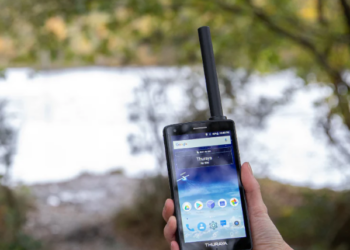Podcast: EchoStar Mobile VP Melia talks IoT
Listen to ‘The Dish’ on EchoStar’s latest partnership
EchoStar Mobile recently announced a partnership with Amsterdam-based The Things Industries to help it deliver IoT connectivity across Europe.
IoT allows people to connect devices with minimal infrastructure to optimize business processes, EchoStar Mobile Vice President and General Manager Telemaco Melia tells Connectivity Business News in the latest episode of “The Dish” podcast.

“We’ve been discussing this for a while with The Things Industries, and we came to the conclusion that many of the customers that use The Things’ terrestrial technology for their enterprise solutions would benefit from using a satellite as well,” he said.
The Dublin-based subsidiary of EchoStar Corp. (Nasdaq: SATS) was looking to extend existing terrestrial coverage with satellite coverage to avoid interruption of service when customers were out of reach of their private networks, Melia said.
The goal of EchoStar Mobile’s partnership with The Things Industries is to deliver satellite technologies that are as user-friendly as terrestrial technologies, such as compact IoT devices and power-efficient antennas, Melia says. “That’s probably the key.”
The global satellite IoT market is projected to reach $8.7 billion by 2032, up from $1.3 billion in 2022, at a 21.1% compound annual growth rate, according to a May report by Allied Market Research. The report notes the market is trending toward hybrid infrastructures that enable connectivity even where cellular service is out of reach.
EchoStar Mobile’s IoT modules are “dual mode,” meaning they can be switched to support a terrestrial or satellite network without additional infrastructure installed, according to Melia.
Listen as Melia discusses EchoStar Mobile’s mission of expanding connectivity in Europe and how hybrid IoT technologies can simplify the networking process for enterprises, enabling them to focus on business.









